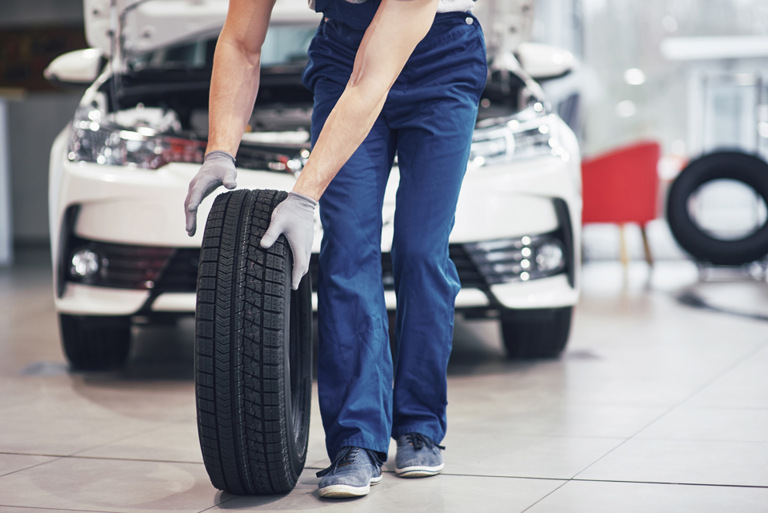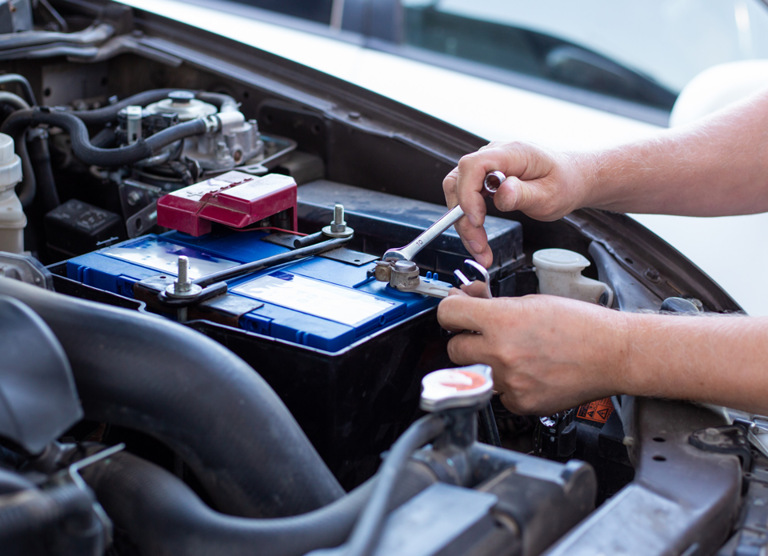Given that your tyres are the ONLY contact that you and your car has with the road — their importance to your safety cannot be underestimated.
Choosing the right tyre for your needs is a serious process and one that should be made with careful consideration of the options available.

- We Fit The Best Tyres For Your Needs
- Advice And Guidance Based On Your Mileage And Driving
- Wheel Balancing
- Wheel Alignment
- Locking Nut Removal
- Easy To Book A Slot To Suit You
At Black Country Tyres and Exhausts we recommend the right tyre at the right price - ALWAYS.
While we understand everyone has a budget, selecting the cheapest tyre for your vehicle will not always necessarily be the best or safest option.
Ask us about discounts for NHS workers

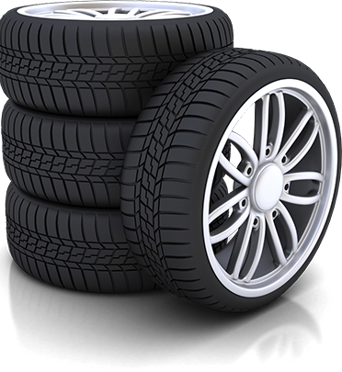
Tyres To Suit All makes, Models and Budgets
Top Brands, Low Prices










Tread Wear
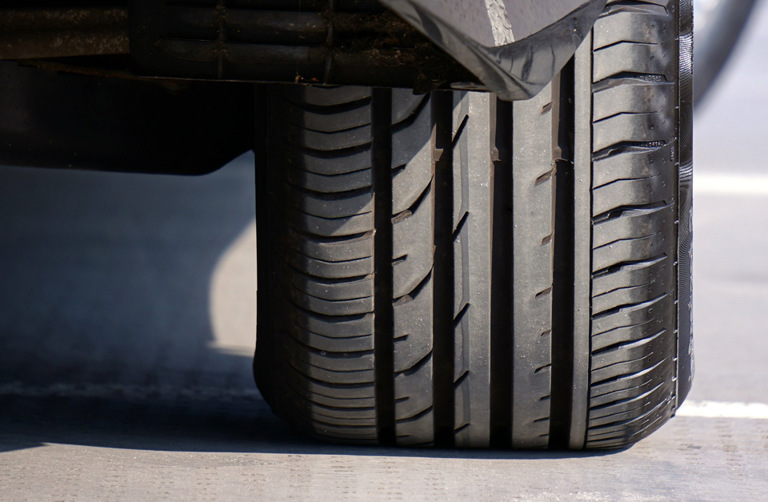
Often tyres have to be replaced long before their specified life has been reached principally because of rapid or uneven tread wear. The most common causes of avoidable tread wear are:
- Under-inflating - Causes rapid wear along the edges of the tread.
- Over-Inflating - Causes rapid wear along the centre of the tread.
- Faulty brakes or shock absorbers - Can cause flat bald spots around the tread of the tyre.
Tyre Pressure
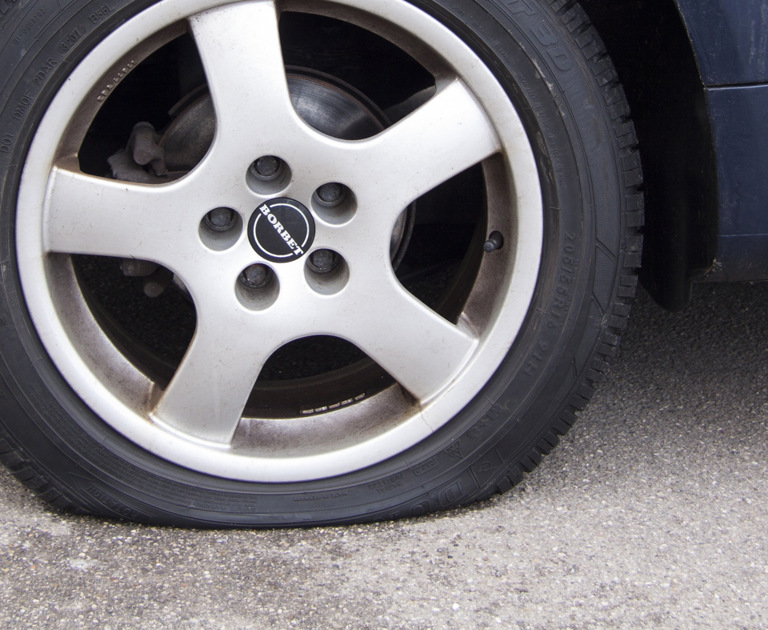
Check your handbook to keep your tyres at the correct pressure or come and see us and we’ll do it for you, for FREE!
Wrongly inflated tyres will greatly shorten your tyres' life, and could make your car dangerous to drive.
Check every two weeks (including the spare tyre) and only check when the tyres are cold, as the pressures increase after the car has been run due to the air inside warming up.
Tyre Tread & the Law
The law state that tyres must have a tread depth of 1.6mm in a continuous band around the centre three quarters of the tyre.
These levels represent the absolute minimum and tyres as worn as this should be replaced immediately.
To help you judge how much tread you have on your tyres, manufacturers often mould tread bars at roughly 1.6mm. If you can see these bars your tyres are about to become illegal and unsafe.
Stay Safe
If you have a heavy load - for example before going on holiday - check your handbook and increase tyre pressures as per manufacturers' recommendations.
Remember to reduce the pressures after removing the heavy load.
Locking Wheel Nut Removal
Lost your locking wheel nut key? broken or damaged your locking wheel nut key?
If you have lost or broken your locking wheel nut key, don't worry - at BC Tyres can still remove your locking wheel nuts. Our locking wheel nut removal service is fully guaranteed, our trained technician will remove the locking wheel nut/bolt from your vehicle quickly and safely.
TPMS Sensor Valve Service And Replacement
Tyre Pressure Monitoring Systems (TPMS) monitor tyre pressures using tyre sensors. The TPMS will alert you with a visual and/or audible warning if there is any change in tyre pressure or temperature.
Fitting a TPMS fitted to your vehicle improves your safety by checking tyre pressure every few seconds. This reduces the chance of a tyre failure which could result in an accident on the road. Having the correct tyre pressure extends the life of the tyres and also helps improve your fuel efficiency.
New vehicles fitted with TPMS and registered from 1st January 2012 will also have their TPMS system tested as part of the first MOT. If your vehicle falls into this category and the TPMS is not functioning correctly, you could fail your MOT test.
The benefits to fitting TPMS?
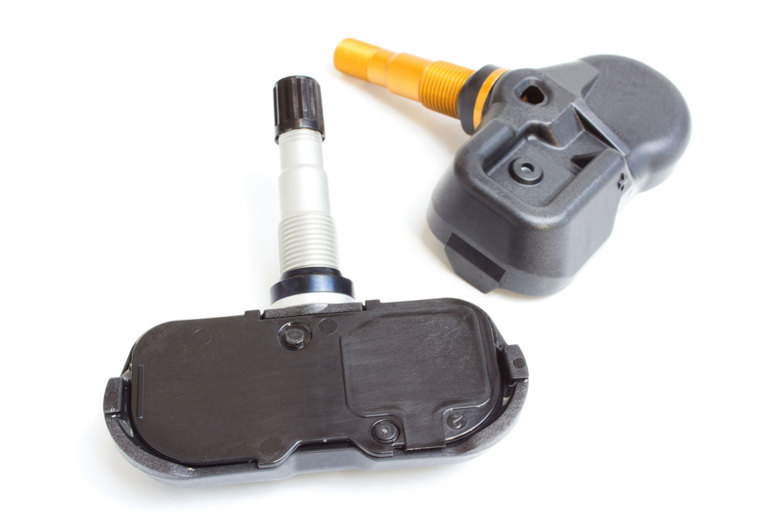
TPMS provide an early warning system for the driver if there is a change or loss of tyre pressure. This reduces the time required for routinely checking tyre pressures manually (advised by all car and tyre manufacturers).
Correct pressures also help save you money. Incorrectly inflated tyres results in uneven tyre wear - causing tyres to be replaced sooner.
Correct tyre pressure improves fuel efficiency, under inflated tyres causes more tread to hit the road, resulting in higher friction (known as rolling resistance) this requires more power (fuel) to drive the car forward. Correct tyre pressure reduces rolling resistance, saving you money and is beneficial to the environment.
TPMS legislation
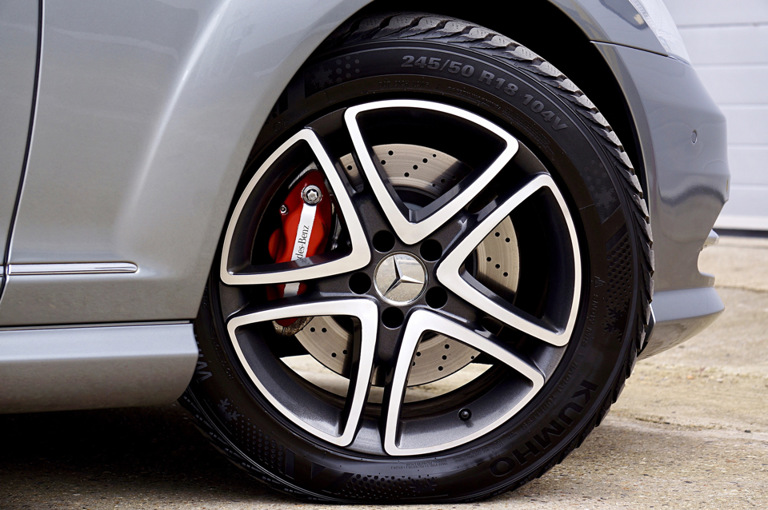
New EU legislation requires all new models of passenger cars sold in the EU to have a TPMS system installed from November 2012, and every new car from 2014. New vehicles fitted with TPMS and first registered from 1st January 2012 will have their TPMS system tested as part of the first MOT test the vehicle has carried out.
TPMS facts and figures
Research shows that a new tyre will leak 3psi - 8psi over a year resulting. This loss causes a 2% increase in fuel consumption and reduces the life of the tyre by up to 25%.
The EU estimates that the under-inflation of tyres is globally responsible each year for:
- 20 million litres of unnecessary fuel consumed
- 2 million tonnes of CO2 emissions
- 200 million prematurely worn tyres
- 9% of accidents involving fatalities
- 41% of accidents involving injury
How a TPMS works
The TPMS works via a sensor valve fitted in each wheel and emits a signal to your car's Engine Control Unit (ECU). It provides the car with information on tyre pressure and temperature. If the tyre pressure drops by more than few pounds (PSI) a warning normally lights up on the dashboard to alert the driver.
Do TPMS sensor valves need to be serviced?
Yes. Sensor valves can be expensive to replace with single units costing anywhere from £45 to £150. Normally a sensor valve will last for years. Wear and tear or damage to the sensor can cause it to become faulty or even fail prematurely. We recommend a regular sensor valve service to helps extend sensor valve life. We also recommend a new service kit when a tyre is repaired or replaced.
Do TPMS sensor valves need to be replaced?
Eventually. A sensor valve normally requires replacing after around 5 years or up to 100,000 miles. This can vary depending on your vehicle usage. High mileage and frequent low pressure alerts can reduce sensor lifespan considerably, they are also vulnerable to damage and corrosion causing them to be replaced.
How does the car 'recognise' a TPMS new sensor valve?
The car's ECU stores the unique identity number of each valve. When a valve is replaced, the new identity number has to be programmed into the ECU. On some cars this has to be done with a diagnostic tool which plugs into the vehicles On Board Diagnostics through a sixteen pin socket usually found under the dashboard (although on some cars it is located elsewhere). On some models the car "self-learns" simply by being driven.
Wheel Alignment
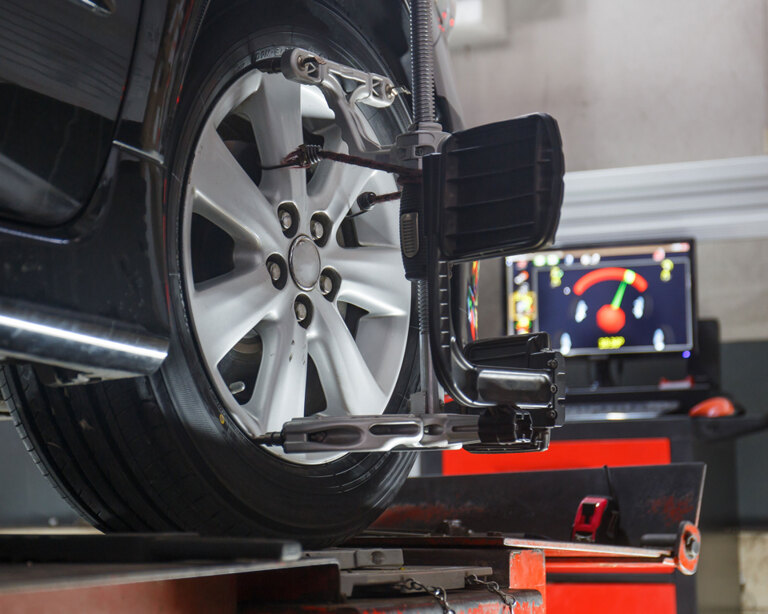
Every car has a specific steering track setting for its front wheels. If the setting becomes upset, by hitting the herb or a pothole, or simply by wear and tear, you will need the wheels realigning. Here at Black Country Tyres and Exhausts we can do this while you wait!
Wear and tear in the steering components can also knock the wheel alignment out of true so it's vital that you have the front wheels realigned every 3 months or 3000 miles.
As good practice, you should have the wheel alignment checked every 6,000 miles or when tyres or steering components have been changed.
Wheel Balancing
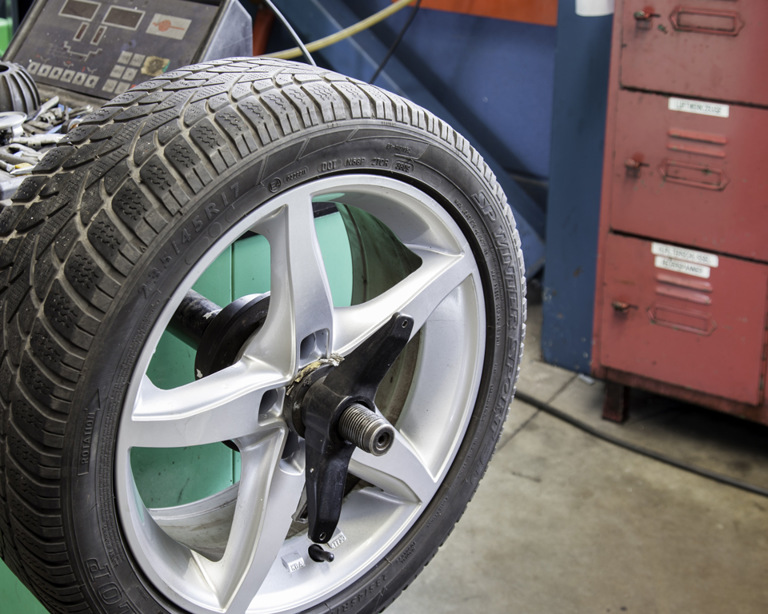
To keep the tread in constant contact with the road, the wheel and tyre have to be correctly balanced.
Wheel imbalance can lift the tyre from contact with the road creating a vibration through the steering wheel and causing dangerous problems with steering and braking.
Damage to the suspension, wheel bearings and steering components is unavoidable if the imbalance is left unchecked.

Your Safety Is Our Priority
Your safety is at stake. Our Black Country Tyres and Exhausts technicians will always check and adjust the balance when a new tyre is fitted.
If you are having other work done, ask our technician to check all road wheels for balance. It could save you pounds, and it could save your life!
The Black Country’s Tyre And Exhaust Specialists
West Bromwich, Oldbury, Blackheath, Cradley Heath, Old Hill, Bilston, Dudley, Tipton, Wednesfield , Halesowen, Wednesbury and Walsall




